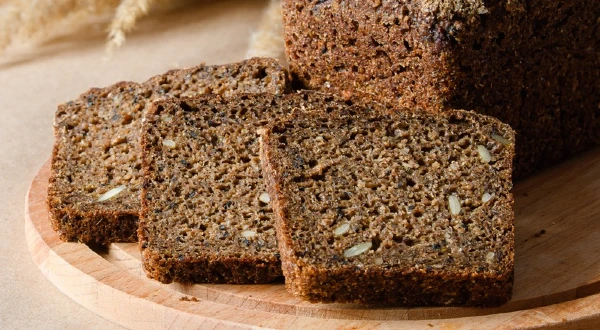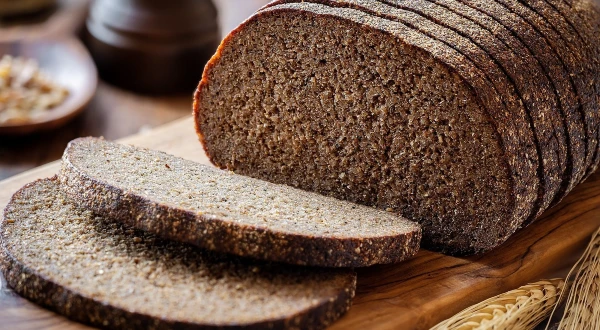Rye bread Benefits, Calories, Whole Wheat Differences
Rye bread Nutrition

| Rye bread (100g) Nutrition | |||
| Carbohydrate | Protein | Fat | Calories |
| 48.3g | 9g | 3.3g | 260kcal |
| Main Nutrition | Dietary fiber, selenium, potassium | ||
| Main Benefits | Diet, colon cancer prevention, cardiovascular health promotion, anti-aging | ||
| Side Effects | Excessive intake may cause abdominal distension; small intake is recommended if you have a gluten intolerance. | ||
Rye bread refers to bread made from rye. It is low in calories, so it is good for dieting, and it has the effect of lowering blood sugar, so even diabetic patients can easily consume it. You can eat the bread as is or make it into a sandwich and it tastes good.
Rye bread benefits

1. Weight management
Rye bread is rich in dietary fiber. This helps prevent overeating by making it easier to feel full. It also lowers body fat accumulation, making it suitable for dieting.
2. Prevention of diabetes
Rye bread is classified as a low GI food. The GI index refers to a number that indicates the rise in blood sugar level after eating food. The higher it is, the faster the blood sugar rises, resulting in excessive secretion of insulin. Rye has a low GI index, so diabetics can eat it well.
3. Anti-aging
Rye bread contains selenium, a type of antioxidant that has powerful antioxidant properties. Selenium protects the body from free radicals, which are oxygen that is overproduced in the body. Selenium prevents degeneration of body tissues and inhibits the action of free radicals, delaying the progression of aging. Rye also helps prevent aging because it decomposes sugar slowly.
4. Cancer prevention
Selenium contained in rye bread not only prevents aging, but also helps prevent cancer caused by free radicals. And rye contains a component called lignan, which is effective in preventing cancer by preventing the proliferation of cancer cells and helping to suppress angiogenesis, which is the cause of cancer. In addition, rye has the ability to excrete waste products and toxins in the intestines, improving the intestinal environment and helping prevent colon cancer.
5. Cardiovascular Health
The fiber contained in rye bread helps maintain the elasticity of blood vessels, contributing to heart health and preventing arteriosclerosis. Rye is also rich in potassium, which helps excrete sodium and waste products accumulated in the body. This helps prevent various cardiovascular diseases by cleansing blood vessels, improving blood flow, and preventing blood vessels from narrowing.
Rye Whole Wheat Difference
Rye is in season from August to September and looks similar to whole wheat, but is a little longer and has a wrinkled surface. There is a strong perception that it has a rough texture and inferior taste compared to whole wheat, so it was mainly used as animal feed in the past. It is also widely used in making bread or as an ingredient in alcoholic beverages such as whiskey and dark beer. It is also rich in dietary fiber and has low calories but high energy.
Side Effect
- Rye bread contains a large amount of dietary fiber, so you must be careful because excessive intake may cause indigestion such as abdominal distension.
- People with gluten intolerance should be cautious as excessive consumption may cause allergic reactions such as diarrhea and abdominal distension.
References
🔹Naturalniprodukti: 7 unexpected health benefits of rye bread
🔹Well+Good: Is Rye Bread Good for You? Health Experts Weigh In
🔹Brooks Grain: 7 Awesome Health Benefits of Rye